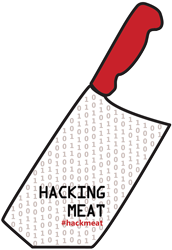 Hacking Meat is an online conversation exploring how can information and technology be used to hack (or reimagine) a more sustainable, profitable and healthy future of meat. Join the conversation and share your ideas or product requests in the comments, on Twitter using #hackmeat, on Facebook or at the Hack//Meat hackathon happening December 7-9 in NYC.
Hacking Meat is an online conversation exploring how can information and technology be used to hack (or reimagine) a more sustainable, profitable and healthy future of meat. Join the conversation and share your ideas or product requests in the comments, on Twitter using #hackmeat, on Facebook or at the Hack//Meat hackathon happening December 7-9 in NYC.
Guest Post by Isha Datar, Director of New Harvest
Isha Datar's talk at the fourth annual TEDxToronto conference, which took place on October 26, 2012 at The Sony Centre for Performing Arts. Celebrating the theme of Alchemy, speakers demonstrated that “intellectual chemistry” can be the catalyst for exceptional ideas and profound change.
The future of meat is eating less of it.
North American meat eaters have come to believe that eating meat for most meals, most days makes sense. It doesn’t.
The health benefits of meat are not positively correlated to the amount we eat. And meat requires a lot of environmental resources to produce. When we consider our ever growing population and our planet’s limited resources, we can’t justify the growing trend in meat consumption.
But how are we to know any better?
We know very little about meat at point of purchase. We’ll see on a package of meat the cut, the day it was packaged, a (artificially inexpensive) price. Thankfully, in the US, we’ll see nutritional info on cuts of meat as of this year.
We need more.
Labeling is a powerful tool to inform consumers, yet labels often tr
eat consumers as uneducated and uninformed. We need to see labels with real information on them, not seals of certification from groups we know very little about, with limited credibility.
How much do you know about the meat you eat? What information would you like to see at point of purchase? Share your thoughts in the comments below, on Twitter using #hackmeat, on Facebook or at the Hack//Meat hackathon happening December 7-9 in NYC.
__________________________________
 Isha Datar is the Director of New Harvest, a non-profit research organization for the advancement of meat substituted like cultured meat. She is the author of “Possibilities for an in vitro meat production system”, Canada’s only scientific investigation into cultured meat. Isha’s work has contributed to the development of Canada’s first in vitro meat lab at the University of Alberta, and has been featured in several articles in Canada and abroad. Her advocacy for the responsible use of science to contribute to food security has led to multiple speaking engagements on in vitro meat and agrobiotechnology patent reform.
Isha Datar is the Director of New Harvest, a non-profit research organization for the advancement of meat substituted like cultured meat. She is the author of “Possibilities for an in vitro meat production system”, Canada’s only scientific investigation into cultured meat. Isha’s work has contributed to the development of Canada’s first in vitro meat lab at the University of Alberta, and has been featured in several articles in Canada and abroad. Her advocacy for the responsible use of science to contribute to food security has led to multiple speaking engagements on in vitro meat and agrobiotechnology patent reform.
-
Family Farmed December 7, 2012 at 12:10 amRespectfully, I disagree. I don't think nutritional labels will change much in terms of point of purchase decisions. A raw whole muscle cut of beef, whether a t-bone or a flank steak, has the same nutritional value. What information will that provide in making decisions? Nutritional values tell you little about how the animal was raised, who owns the product throughout the value chain, the ecosystem services provided to the farm or ranch by raising livestock and how and where the animal was processed. Isn't that the information we are after as we seek to improve the way livestock are raised and processed in this country? I'm not sure how knowing how many grams of riboflavin is in my ribeye will help with this. Second, I feel that you totally dismissed groups like Animal Welfare Approved and The American Grassfed Association who are doing good, important work. These are not organizations with limited credibility. If you know very little about them, get on their website, read their publications and call their offices. Producers and processors need to be more transparent, but consumers also need to make an effort to educate themselves.


